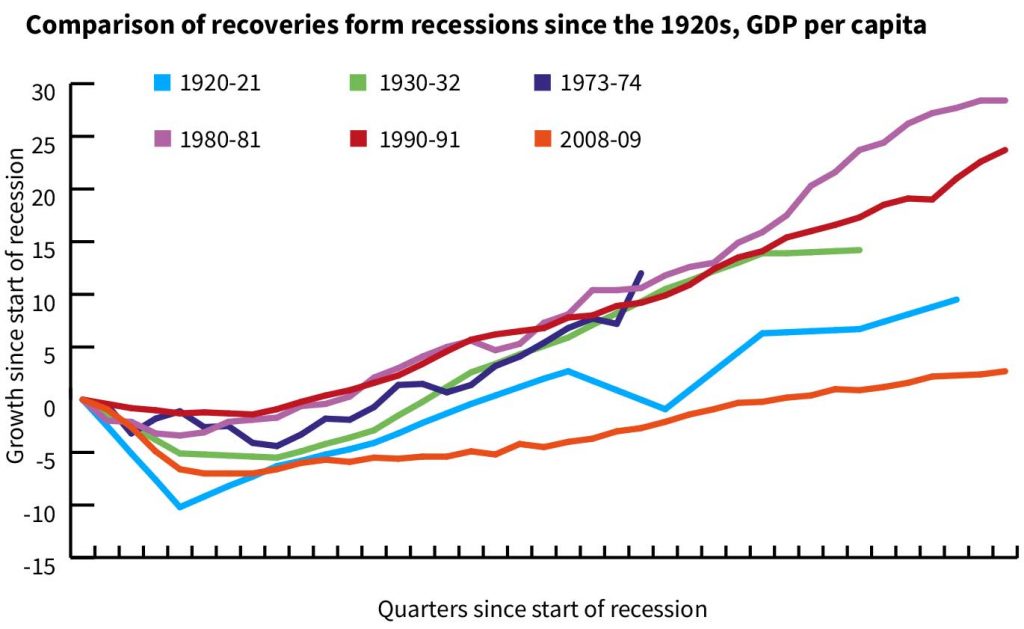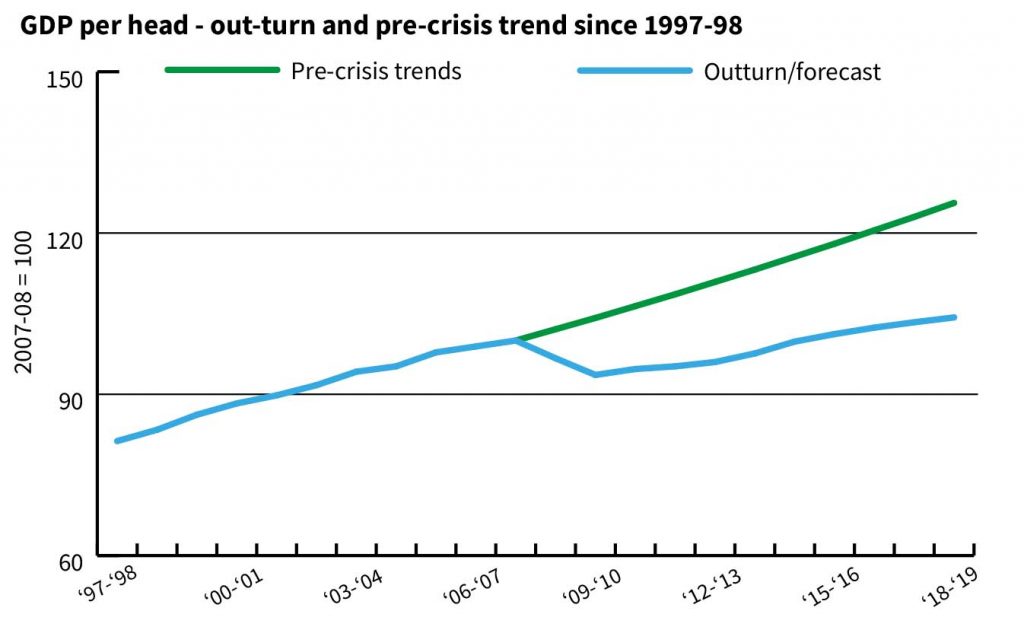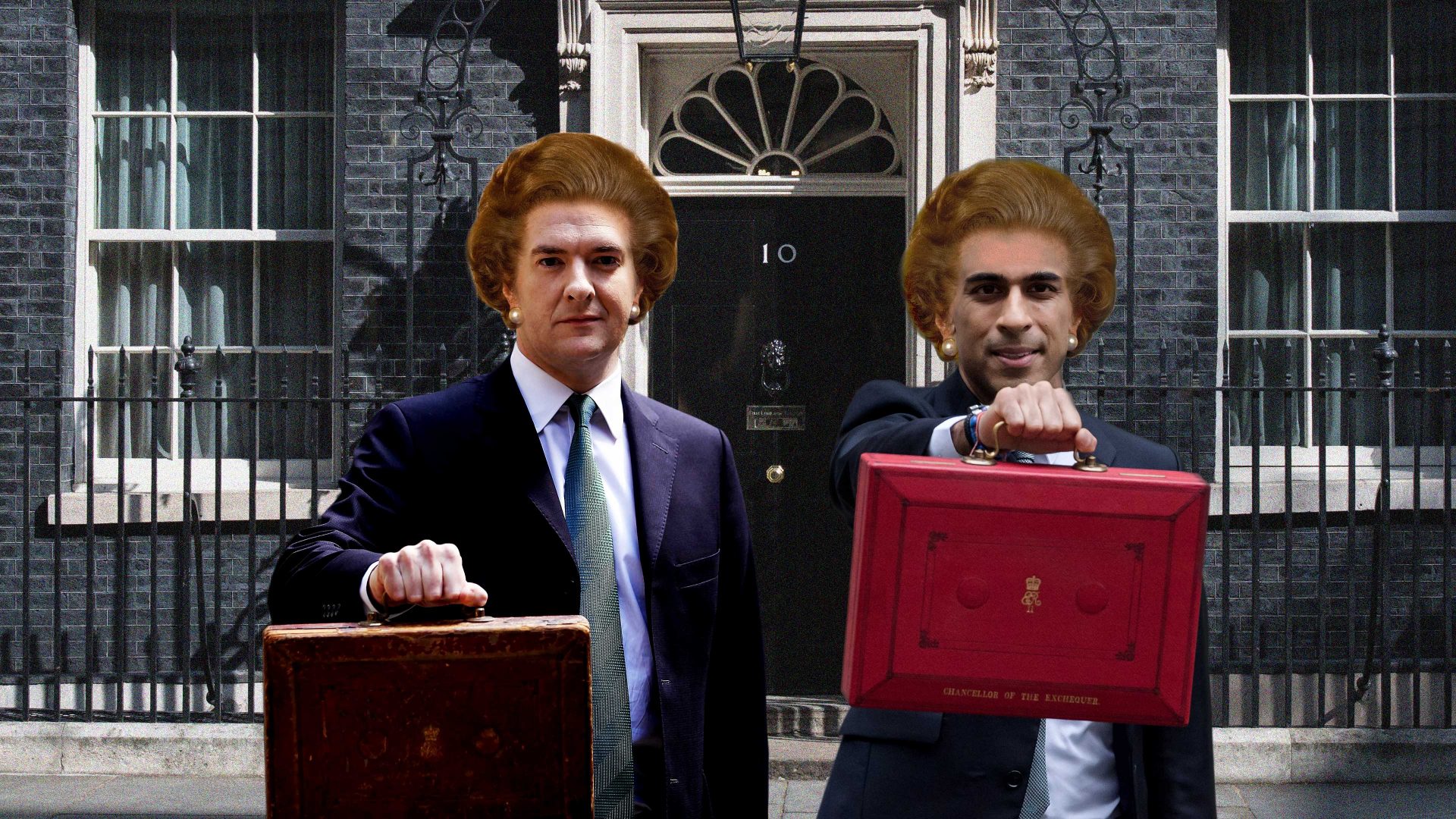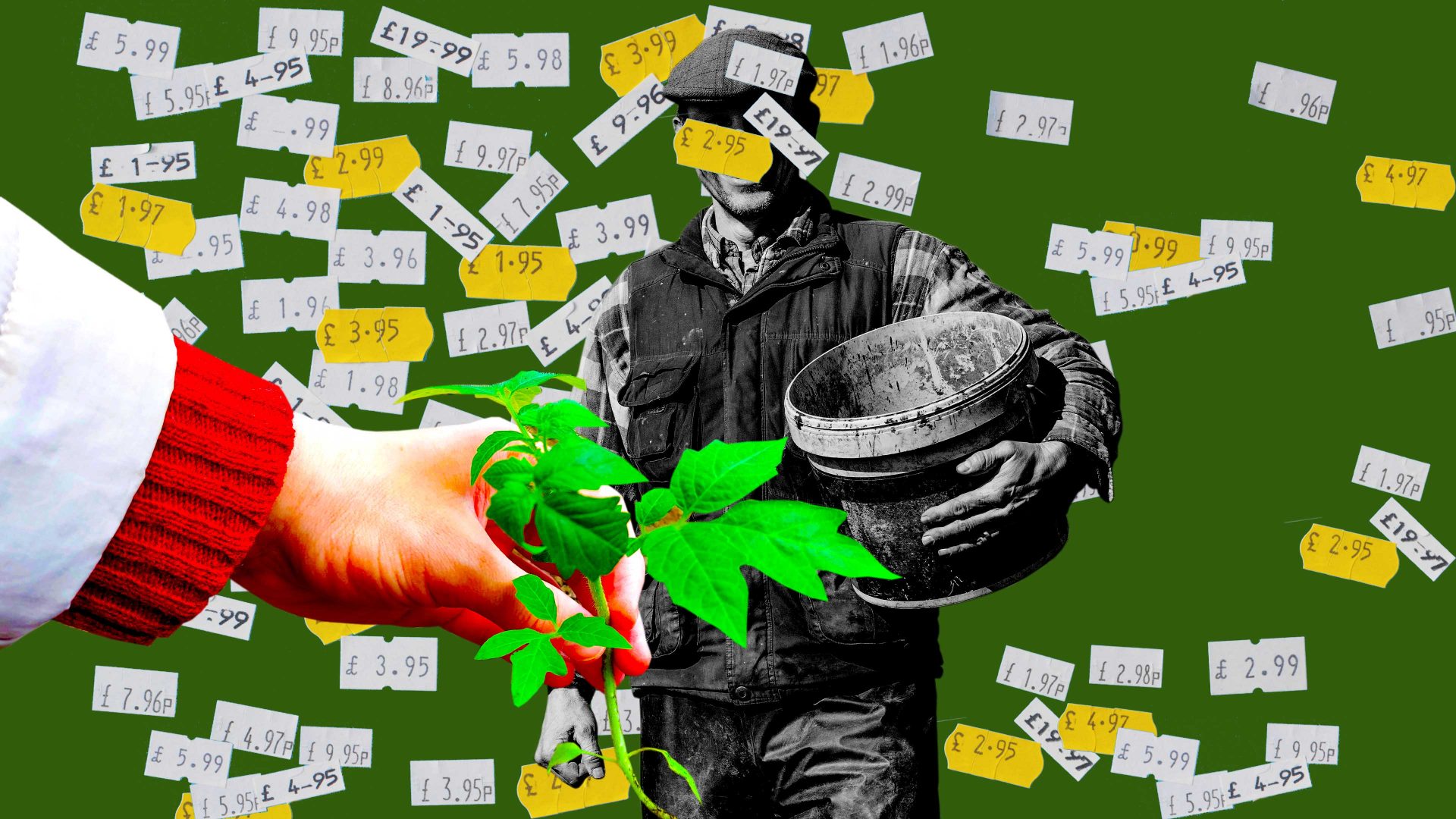I think it was Albert Einstein who said that the definition of madness is doing the same thing time and time again and expecting different results.
It is something that should make this Conservative government pause for thought, but it won’t.
Austerity was tried for a decade after the credit crunch and it was a total failure. It created the slowest economic recovery in 300 years – average real wages are still lower than in 2008 – an unprecedented economic failure.
The government still missed its borrowing targets by miles and the economy stuttered along at a depressing rate of growth for a decade. Productivity growth collapsed – averaging 2% a year before austerity compared with 0.3% pa during. There was also a massive reduction in the ability of the state to cope: court cases were delayed, the police slashed, the NHS run down, social care and the elderly ignored, state education spending fell further behind private schools, all in a desperate attempt to bring down borrowing.

A great deal of this is the fault of, or at least the cult that has grown up around her. Her disciples can only talk in terms of balancing the budget and reducing the size of the state; the fact that the figures show this doesn’t work is ignored. It’s as if they only have to obey all the commandments of Thatcherism and then they too will become immortals.
It also, by the way, explains Brexit. As far as I am aware Lady Thatcher never publicly called for the UK to leave the European Union, but it is just taken as a given that it is what she really wanted and therefore delivering it became a crusade.
The same is true of this government’s attitude to austerity, and it is very likely to have the same effect as austerity did last time.
The government sees itself as the one true heir of Thatcherism, faithful unto death, keeping alive the flame that leads the way to prosperity and freedom. When, in fact, they have just absorbed a load of economic gibberish with their mothers’ milk and seem to think following Thatcherism involves ever more radical and nasty policies before we are finally set free.
It helps a great deal that the devotees of this cult are rich and successful individuals. It is all very easy telling people that it is necessary they should suffer for the greater good, when you are never at risk of suffering yourself. There are not many Tory MPs who have worked as deckhands for P&O Ferries, but an awful lot who think that the weakest employment protections in Europe need to be even weaker.
But the real concern about having such politicians near the levers of power is that they have learned nothing from the last 10 years.
Austerity was a complete disaster. What the UK really needed was a sustained period of above-trend growth and what it got was a sustained period of below-trend growth. The future for the UK economy, therefore, looks depressingly familiar.
We know that Brexit will cut growth by another 4% in the coming years, so the government was already facing a headwind and the war in Ukraine has piled on the problems. But its own policies have also added to its woes.
For a start, it has the money available right now to spend more and there are an awful lot of places it could, and needs to, spend more. We know it has the money because its borrowing has fallen dramatically faster than expected and in his Spring Statement the chancellor boasted that he was saving up billions for a tax giveaway ahead of the next election.
The latest figures show that government borrowing halved in the last year, that is because of a combination of lower spending on emergency Covid measures but also massively increased government revenue from taxes. Revenue increased by £94.3bn last year, to £619.9bn; that is because the economy bounced back from Covid and grew rapidly.
The key to controlling borrowing is therefore to encourage growth. The faster the economy grows the more money the government has coming in without having to increase taxes and the smaller the borrowing total becomes as a percentage of GDP. But the government is intent on doing what it did last time – increase taxes and reduce borrowing, come what may.

With a cost of living crisis striking now, this would be the time to spend money. Millions of workers face wage rises that are well below the rate of inflation and, therefore, they will have less money to spend. On top of that, the huge increases in energy costs are sucking money out of people’s bank accounts and into the coffers of the energy companies and the government through higher VAT receipts.
This is money that is not available to be spent on new clothes, cars or TVs and so will reduce growth. Higher food prices have the same effect, of course. Pensioners and others on benefits are also feeling the same squeeze, or worse, as the government deliberately didn’t increase their payments in line with inflation.
At the same time the chancellor has introduced huge increases in the tax burden on workers through the rise in national insurance and frozen increases in tax bands for four years, in effect a secret tax rise that will pull millions into paying tax or higher tax. The government has also increased taxes on companies and hit the young yet again; it has raised the interest rate on student debt to 12%, when the government can borrow that money at less than 1%.
All these factors will slow growth, not boost it. They will hurt families that have been struggling for years and push many into abject poverty. Meanwhile, the chancellor sits on an election war chest.
The government claims that this policy is dictated by necessity. The logic, if you can call it that, is that the government must borrow less now or the markets will turn on it and refuse to lend. The fact that the markets are willing to lend to the government at far less than the rate of inflation, and so are literally paying the government for the privilege of lending it money, seems to have passed it by.
The key then is to boost growth and not to slash and burn the economy in a futile attempt to balance the books.
This economic obsession with debt reached its nadir under then chancellor George Osborne, when in 2014 he paid homage to the generation that sacrificed itself for King and Country in the first world war, by repaying the final debts run up to finance the war.
If any of you, at the time, wondered where he got the money to do that in the middle of austerity, the answer was simple. The chancellor borrowed the money to repay the first world war debt, for another 30 years.
This is the equivalent of me coming home and telling my wife, “Darling, I have paid off the mortgage”, only to then admit that I had borrowed exactly the same amount of money but for longer, from Lloyds Bank, and used it to repay the mortgage at the Nationwide.
This cynical ploy also exposed the lie at the centre of the government’s economic policy. That is, it had no problem whatsoever with borrowing more money for 30 years, for a publicity stunt.
It also explains why during Covid the government could and did raise almost unlimited amounts of money. Only to throw vast amounts of it away on track and trace, unusable PPE and dodgy business loans, just in an attempt to keep the economy alive. It was simple, easy and cheap.
It could easily have borrowed between 2010 and 2020 and used the money to boost growth, productivity, health, education and a thousand other things. But it didn’t.
With steady economic growth, the debt as a percentage of national wealth would have started to fall, not because we were borrowing less but because we were growing more.
The government did not do so because it was and still is in thrall to a Thatcherite dream about cutting borrowing and, therefore, cannot even see the evidence before its own eyes and the damage its policies have caused.
It is now repeating exactly the same experiment and hoping for a different result. The inevitable consequence of this madness is that we will all suffer.
Jonty Bloom is a former BBC business and Europe correspondent




